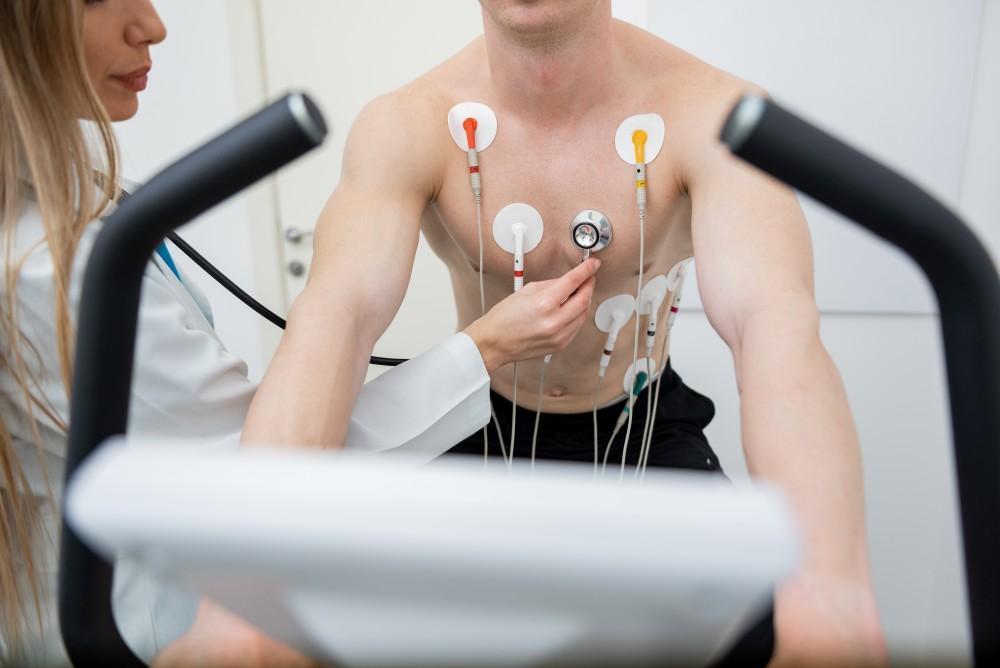
The Link Between Hypertension and Heart Failure

High blood pressure is often dubbed “the silent killer” because you don’t feel the effects of high blood pressure. Unless you have regular blood pressure readings, it’s nearly impossible to know you’ve got hypertension. High blood pressure can develop slowly over the years, and if it’s left untreated, it can lead to heart failure. This makes routine care even more important.
Dr. Henock Saint-Jacques of Harlem Cardiology knows that managing high blood pressure is essential for preserving your heart health. As an experienced cardiologist, Dr. Saint-Jacques diagnoses and treats hypertension, and if you have high blood pressure, we recommend that you come visit us to get it under control.
In this article, we’ll explore the link between hypertension and heart failure and — most importantly — what you can do to manage hypertension.
What does hypertension mean?
Before we cover the link between hypertension and heart failure, let’s first dive into hypertension. Hypertension (sometimes called just high blood pressure) means the pressure inside your arteries is higher than it should be. When your blood is pumping through your arteries at a higher-than-normal pressure, it can actually damage your arteries.
Hypertension is diagnosed with a painless reading. A sphygmomanometer is the name of the cuff that measures your blood pressure.
Here’s what your numbers mean:
- Normal blood pressure: <120/<80
- Elevated blood pressure: 120-129/ <80
- High blood pressure (hypertension stage 1): 130-139 / 80-89
- High blood pressure (hypertension stage 2): 140+ / 90+
A hypertensive crisis — which warrants immediate medical care — is a reading of 180+/ 120+.
How hypertension leads to heart failure
According to the American Heart Association, heart failure is a condition in which your heart simply can’t provide enough blood for your body. Heart failure doesn’t mean that your heart stops beating, but it does mean that it’s not pumping blood as effectively as it should.
High blood pressure can contribute to heart failure. Here’s how:
- The high pressure damages your arteries, creating tiny tears. According to WebMD, these tiny tears turn into scar tissues, which allow plaque and cholesterol to build up easier.
- Narrowed arteries (which might be blocked by plaque) aren’t as elastic, which means blood doesn’t flow smoothly throughout your body.
- When blood flow is decreased or interrupted, your heart doesn’t get all of the oxygen or nutrients it needs.
- High blood pressure makes your heart work harder.
When your heart constantly has to work harder, it eventually becomes less efficient.
Managing high blood pressure
According to a 2017 study, almost all cases of hypertension can lead to heart failure, unless interventions are taken. Thankfully, there are many ways to take control of your blood pressure levels. Medication can help safely lower your blood pressure, but you can also support your heart health with lifestyle changes. This includes:
- Exercising regularly
- Quitting smoking
- Adopting a heart-friendly diet
- Reducing sodium intake
- Avoiding excess alcohol consumption
- Managing stress levels
You may also benefit from an EKG. This is a simple, painless test that can check to make sure high blood pressure hasn’t already damaged your heart.
We know that it can be stressful to worry about your heart health, but we’re here to guide you with your next steps and make sure you get the cardiac care you need. Whether you need medication or help sticking with a new heart-healthy routine, it’s our mission to support your heart.
If you have concerns about hypertension or heart failure, give our East Harlem, New York, clinic a call at 646-381-2181. Or, simply visit our website to request an appointment today.
You Might Also Enjoy...


Is It Possible to Lower My Blood Pressure Naturally or Do I Need Medicine?

What You Can Do Now to Prevent a Stroke Later in Life

3 Noninvasive Tests That Measure the Health of Your Heart

What Can I Do About My Varicose Veins?


